A U.S. judge canceled a key permit Wednesday for the Keystone XL oil pipeline that’s expected to stretch from Canada to Nebraska, another setback for the disputed project that got underway less than two weeks ago following years of delays.
Judge Brian Morris said the U.S. Army Corps of Engineers failed to adequately consider the pipeline's effect on endangered species such as pallid sturgeon, a massive dinosaur-like fish.
The ruling, however, does not shut down work that has begun at the U.S.-Canada border crossing in Montana, according to attorneys in the case. Pipeline sponsor TC Energy will need the permit for future construction across hundreds of rivers and streams along Keystone's 1,200-mile (1,930-kilometer) route.
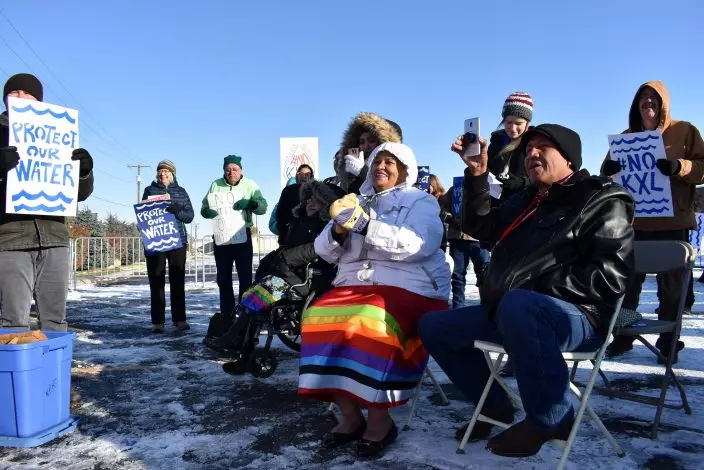
FILE - In this Oct. 29, 2019 file photo, opponents of the Keystone XL oil pipeline from Canada demonstrate in sub-freezing temperatures in Billings, Mont. Alberta is investing $1.1 billion in the disputed Keystone XL pipeline, a project that Alberta Premier Jason Kenney says is crucial for the province's economy. (AP PhotoMatthew Brown, File)
A spokesman said TC Energy was reviewing the ruling.
“We remain committed to building this important energy infrastructure project," spokesman Terry Cunha said.
Officials with the Army Corps of Engineers did not have an immediate response to the ruling.
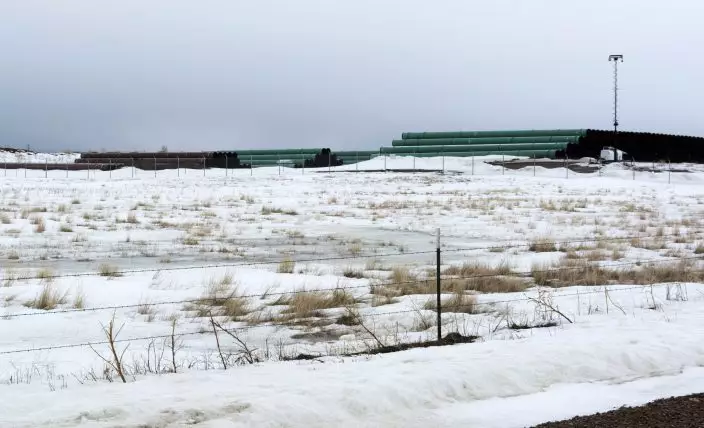
This March 11, 2020 photo provided by the Bureau of Land Management shows a storage yard north of Saco, Mont., for pipe that will be used in construction of the Keystone XL oil pipeline near the U.S.-Canada border. A Canadian company said Monday, April 6, 2020, that it's started construction on the long-stalled Keystone XL oil sands pipeline across the U.S.-Canada border, despite calls from tribal leaders and environmentalists to delay the $8 billion project amid the coronavirus pandemic. (Al NashBureau of Land Management via AP)
Morris is holding a court hearing Thursday on two other lawsuits against the $8 billion pipeline. American Indian tribes and environmental groups want him to halt the construction at the border while a lawsuit challenging President Donald Trump's approval of the pipeline last year works its way through the courts.
The pipeline was proposed in 2008 and would carry up to 830,000 barrels (35 million gallons) of crude daily to Nebraska, where it would be transferred to another TC Energy pipeline for shipment to refineries and export terminals on the Gulf of Mexico.
It was rejected twice under the Obama administration because of concerns that it could worsen climate change, then Trump revived it.
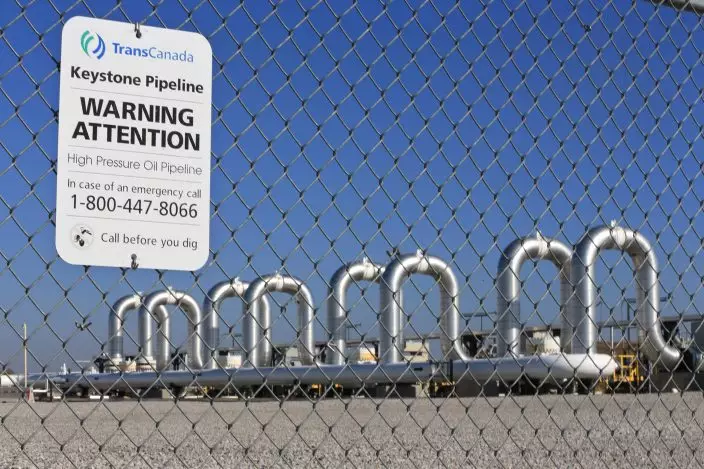
FILE - This Nov. 3, 2015 file photo shows the Keystone Steele City pumping station, into which the planned Keystone XL pipeline is to connect to, in Steele City, Neb. Pipeline sponsor TC Energy says it has started preliminary work along its route through the U.S. as opponents wait for a judge to rule on their request to block the project. (AP PhotoNati Harnik, File)
TC Energy’s surprise March 31 announcement that it intended to start construction amid a global economic crisis caused by the coronavirus pandemic came after the provincial government in Alberta invested $1.1 billion to jump-start the work.
Tribal leaders and some residents of rural communities along the pipeline's route worry that thousands of workers needed for the project could spread the virus.
As many as 11 construction camps, some housing up to 1,000 people, were initially planned for the project, although TC Energy says those are under review amid the pandemic.
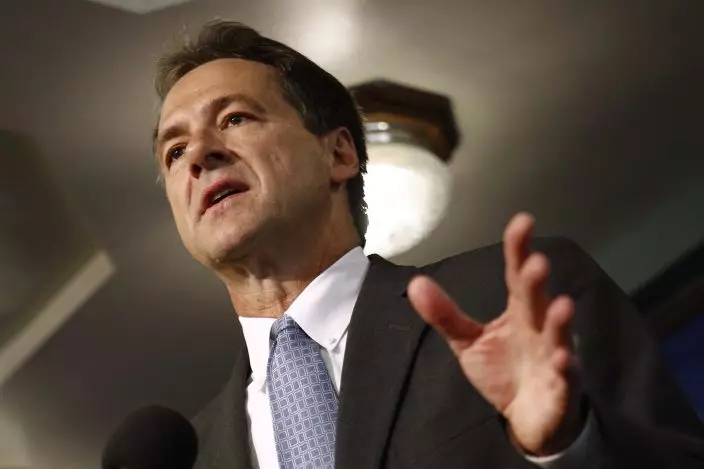
FILE - In this Aug. 7, 2019, file photo, Montana Gov. Steve Bullock speaks at the National Press Club in Washington. Major construction projects moving forward along the U.S. borders with Canada and Mexico amid the coronavirus pandemic are raising fears workers could spread infections within nearby communities including several Native American tribes. Bullock said that could further strain rural health systems facing the coronavirus. (AP PhotoPatrick Semansky, File)
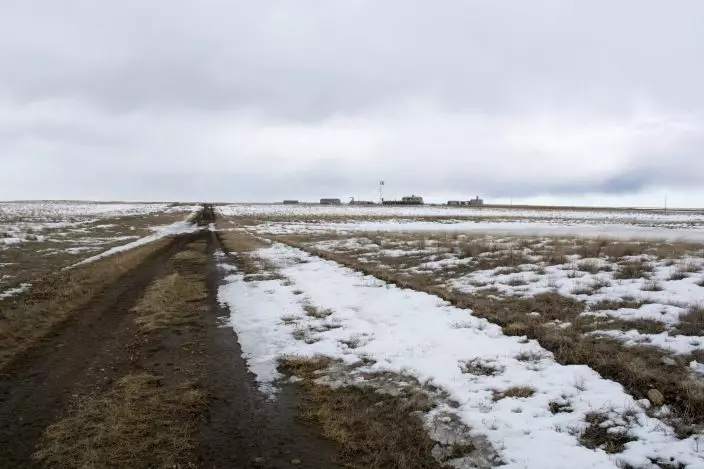
This March 11, 2020 photo provided by the Bureau of Land Management shows the proposed route of the Keystone XL oil pipeline where it crosses into the U.S. from Canada in Phillips County, Montana. A Canadian company said Monday, April 6, 2020, that it's started construction on the long-stalled Keystone XL oil sands pipeline across the U.S.-Canada border, despite calls from tribal leaders and environmentalists to delay the $8 billion project amid the coronavirus pandemic. (Al NashBureau of Land Management via AP)


